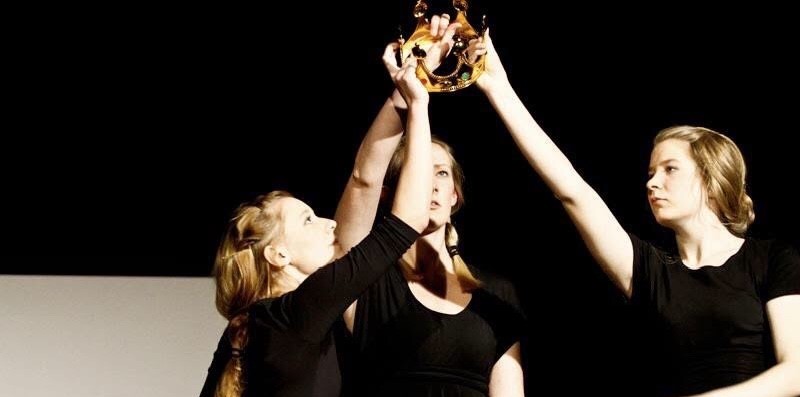
Early Career Researcher News: Mette Hildeman Sjölin
21st May 2021
Mette Hildeman Sjölin, Stage Appropriations of Shakespeare’s Major Tragedies, 1980-2010 (Lund Studies in English, 2020)
BSA member Dr Mette Hildeman Sjölin tells us about the content and origins of her first monograph, which is available in open access here.
I first got the idea for what would become my doctoral thesis and then my first monograph, Stage Appropriations of Shakespeare’s Major Tragedies, 1980-2010, when I read Lear’s Daughters during my exchange studies at the Shakespeare Institute in Stratford-upon-Avon in 2010. I became so enamoured of this one-act feminist play written by the Women’s Theatre Group in 1987 after an idea by Elaine Feinstein, that on my return to Sweden I translated it into Swedish and directed it with my university drama society. A couple of years later, when I embarked on my PhD studies, the experience of seeing Shakespeare’s King Lear through the lens of having read (and directed) Lear’s Daughters was an important starting point.
Shakespeare’s drama has always been an object of adaptation and a source of inspiration for other playwrights. Shakespeare’s own plays were of course based on already existing stories, from history writing and ancient myths to recent texts by contemporary colleagues. In a way, Shakespeare’s plays are only one stage in an ongoing process of adaptation. King Lear and his daughters, for example, appear in countless guises both before and after Shakespeare’s version. During the last couple of decades of the twentieth century, in the wake of the second feminist wave, there was an explosion in Shakespeare appropriations seeing the stories from the point of view of female characters. It also became increasingly common to treat Shakespeare’s tragedies as domestic drama, both in appropriations and in performances of the plays themselves.
In Stage Appropriations of Shakespeare’s Major Tragedies, 1980-2010, I investigate stage plays written around the turn of the millennium and taking place in the play worlds of five of Shakespeare’s tragedies: King Lear, Macbeth, Othello, Romeo and Juliet and Hamlet. Reading these appropriations against the backdrop of the sources and performance histories of Shakespeare’s plays, I pay particular attention to the depiction of women and family relationships.
Many of the appropriations I study are written from a feminist perspective, and I am particularly interested in how theatre companies relate Shakespeare’s texts to present-day gender politics. During the last forty years, the debate on how the gender balance can be redressed on the professional stage has among other things led to an increasingly open attitude to what bodies can perform what roles. The feminist plays I have analysed also use a number of specific strategies to give space and a voice to fictitious women that they consider to have been marginalised and silenced in Shakespeare’s versions of the stories.
At the same time that new plays were written from the point of view of Lady Macbeth to counterbalance the male-dominated and female-demonising Macbeth, actors playing the role of Lady Macbeth in Shakespeare’s play were trying to uncover her human side from under all the stereotypes and conventions that had amassed over the years. Furthermore, a comparison of Shakespeare’s text with the sources he used for Macbeth reveals that he had already done a great deal when it comes to humanising Macbeth’s wife and giving her more space to express herself. By considering material such as this, my book provides a fresh perspective on how Shakespeare’s women have travelled through time, as they have been interpreted and rewritten by theatre practitioners and writers. The overall contribution of the book is to show how appropriations are used as a strategy for discussing issues that are central both to Shakespeare’s plays and to the present gender-political climate.
Dr Mette Hildeman Sjölin (Lund University, Sweden)
To learn more about Mette’s research, please visit her departmental profile page.
